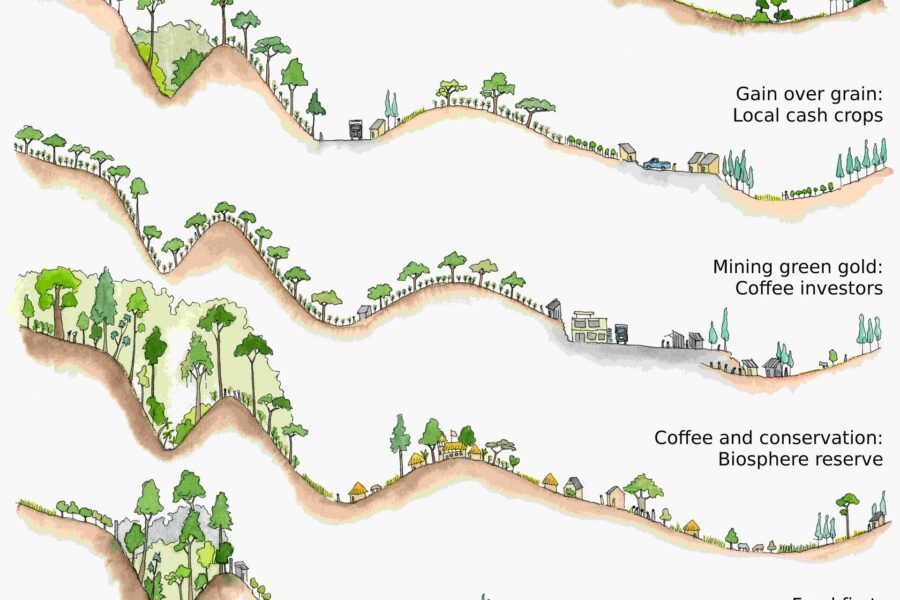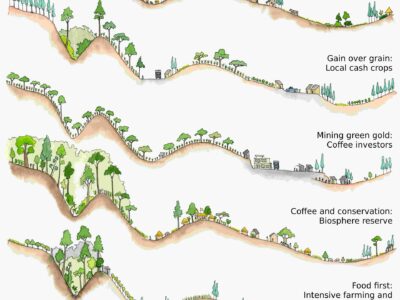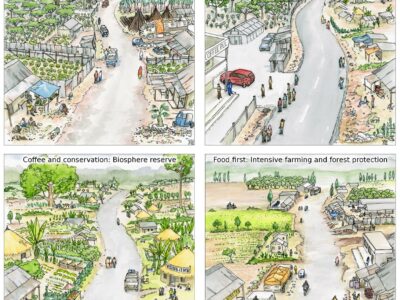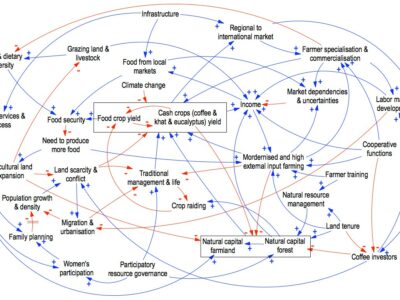Focusing on food security and biodiversity conservation, we conducted a participatory scenario planning in a rural landscape in southwestern Ethiopia. This area is characterized by smallholder farming, rapid population growth, and fast environmental change. For this, by iteratively engaging stakeholders from different sectors and governance levels, we identified social-ecological dynamics, critical uncertainties and produced four plausible future scenarios. These four scenarios differ in the system properties, including land-use strategies, governance mechanisms, feedback mechanisms, and food security and biodiversity outcomes. A clear trade-off was apparent in three scenarios that focused on agricultural intensification practice. In contrast, the biosphere scenario, in which people and biodiversity would benefit from the proactive management of social-ecological interactions, maintains the balance between food security and biodiversity
A post-workshop survey showed that all stakeholders positively evaluated the overall scenario
development process. 67% consider that the scenario planning process would help them to think about the future of their landscape and the need of integrating food production and biodiversity conservation and 56% agree that it would
facilitate future discussion and cooperation.
The scenarios were made in: 2019
The scenarios look out to: 2040



